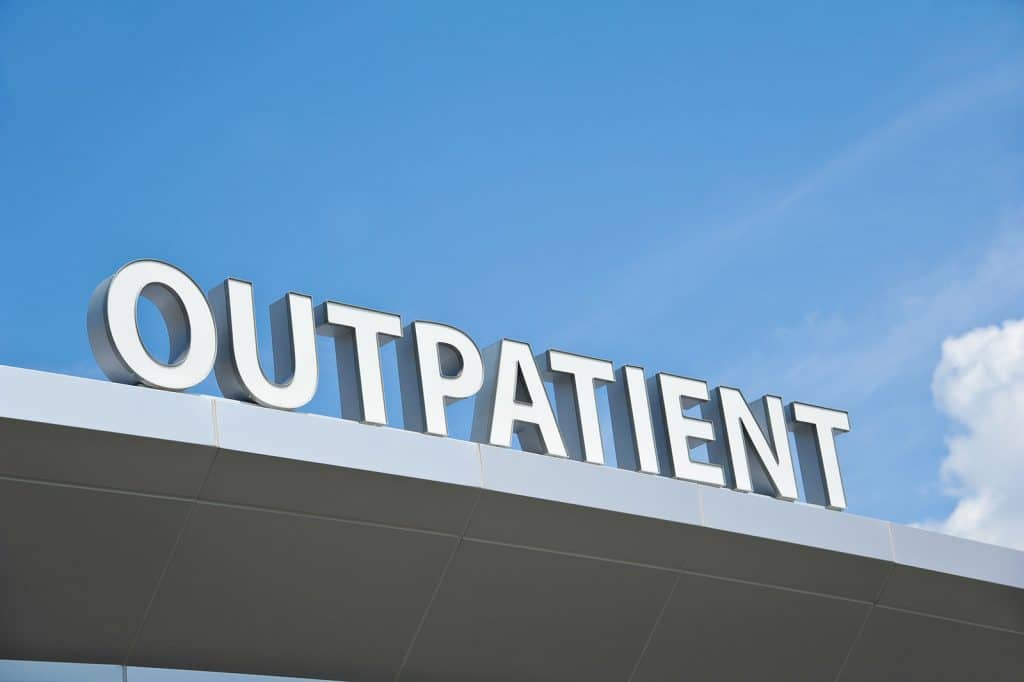Drug Rehab in New Jersey
The statistics for the way that Americans consume alcohol are rather frightening, and binge drinking is particularly disturbing. Although the fact that someone engages in binge drinking doesn’t mean that he or she has an alcohol use disorder, this person is likely to be diagnosed with an alcohol use disorder sometime in the future.

Binge drinking is defined as a man who drinks at least five alcoholic drinks within a 2-hour period. For women, it is when a female ingests at least four alcoholic beverages within a 2-hour period. The most likely place where this type of behavior occurs is on a college campus. It also happens quite frequently in the movies. Researchers learned that 25% of Americans from age 18 to 24 admitted that they binge drank.
If you are looking for a rehabilitation center in New Jersey for your loved one, you can easily find one. One example is Garden State Detox in Newton, New Jersey.
The first question that people often have is about the cost of drug rehab in New Jersey. This will depend on how long your loved one will be in the facility and the level of care that he or she will need. Cost does not have to prevent you from getting your loved one the help that he needs because many insurance policies cover drug rehab in New Jersey.

More than 50% of drug rehabilitation centers in New Jersey will accept several types of insurance, and these include the following:
Private Health Insurance
In New Jersey, 65.9% of rehab centers accept private health insurance.
State-Funded Health Insurance
Also, 33.6% of drug rehab centers accept state-funded health insurance.
Medicare
Another 24.7% of drug rehabs accept Medicare.
Medicaid
New Jersey rehabs accept 60.7% of patients with Medicaid.
At Garden State Detox, we will verify your loved one’s insurance coverage before admitting him to the program. Then, you will know whether or not there will be any out-of-pocket expenses.
What Does Drug Rehab New Jersey Treat?
At Garden State Detox, we will treat your loved one for his alcohol use disorder. In 2015, the state of New Jersey found that 68,628 people received help from a drug rehab in New Jersey. Of this 68,628 people, 10,948 in this population sought help for an alcohol use disorder.
Our medical professionals at Garden State Detox are fully licensed and experienced in treating alcohol use disorders. Your loved one will benefit from our staff’s knowledge and experience each day that he is enrolled in our programs.
Detox
When someone has been drinking heavily for a long period of time, his body becomes accustomed to having alcohol in his system. If your loved one suddenly stops drinking alcohol, he will begin to experience highly uncomfortable withdrawal symptoms. That’s because your loved one’s brain came to expect to be given alcohol each day.

If your loved one stops ingesting alcohol, his body will not receive the dopamine rush that he received when he was drinking. This causes your loved one’s body to feel extremely stressed and anxious, and it is hard for your loved one to endure.
Your loved one’s body needs to readjust to the point where it was before he started drinking alcohol, but this takes some time. It would require your loved one to experience the withdrawal symptoms until his body can make the adjustments. This is the hardest time for your loved one to abstain from alcohol, and it may even be hazardous to his health.
The detox program at Garden State Detox places your loved one in an area where he will be monitored for dangerous withdrawal symptoms, such as delirium tremens that can lead to hallucinations, confusion, agitation, trembling, nausea, seizures, and death. Detox may need to take as long as a month, so you are not recommended to allow your loved one to detoxify on his own.
Inpatient Treatment
If you or your loved one have been suffering from an alcohol use disorder for several years, the best place for you is an inpatient treatment program. Inpatient treatment programs offer you around-the-clock monitoring. In the medical detox program, the physicians prescribe medication to help you tolerate the withdrawal symptoms until the withdrawal process is over. Then, you or your loved one will enter into counseling with a therapist.
While you or your loved one are in therapy, you will learn many valuable lessons that you will take with you as you return to your normal life. Before you do that, you will have time to become accustomed to living without consuming alcohol. Living at the facility will make it easier for you or your loved one to adjust to life without alcohol because there isn’t anything at the facility that can tempt you.
Outpatient Treatment
If your loved one is newly addicted to alcohol, he may not require an inpatient stay at a rehabilitation center. Outpatient treatment doesn’t require that your loved one lives at the facility, so it is less restrictive than the inpatient program. The program at Garden State Detox gives your loved one several opportunities to take part in therapy outside of the facility with teletherapy. Your loved one will also attend counseling sessions and other programs at the facility.

Integrated Treatment
Your loved one may have problems with substances other than just alcohol. Integrated treatment at Garden State Detox can help you or your loved one if this is the case. Integrated treatment addresses your loved one’s alcohol use disorder and other substance use disorders. This is the treatment that you can receive whether you are in an inpatient program or an outpatient program.
The knowledgeable team at Garden State Detox has been educated on the ways in which alcohol and other substances interact with each other. Sometimes, people experiencing alcohol use disorders are also experiencing a mental health disorders. According to the National Institute on Drug Abuse, 7.7 million adults have co-occurring mental health disorders and substance use disorders. The staff at Garden State Detox is experienced with treating both types of disorders at the same time.
The Long-Term Solution – Aftercare
Addictions to alcohol and drugs require a long-term solution, and the reasons that this is true are many, including the following:
- A long-term program gives your loved one more time to build relationships with other sober individuals. He also finds sober networks that can help him navigate his way to sobriety over several years.
- Long-term treatment programs provide enough time for your loved one to experience several types of treatment modalities.
- Residents in long-term programs also receive long-term treatment from physicians and nurses that prevent them from experiencing the negative physical consequences of their substance use disorders. If your loved one is ever in distress, a physician or a nurse will be aware of it at the earliest time possible. Then, the issue can be addressed before your loved one experiences any serious consequences.
- At Garden State Detox, we prepare your loved one to live on his own without using alcohol, but we also provide aftercare options that will ensure that he remains on the path toward sobriety.
Drug Court Programs
In 1996, the state of New Jersey began to implement drug court programs. Officials discovered that these programs worked well for the citizens of New Jersey, so they expanded them beyond that year. In a 12-month to 24-month period, those enrolled in the program received intensive treatment, such as the following:
- Court appearances
- Random testing
- Residential or outpatient treatment programs
- Individual and group counseling
- 12-step support groups
- Relapse prevention
- Involvement in the community
Since the year 2002, approximately 3,600 people graduated from New Jersey’s drug courts, and about 84% of this population was employed by the time they graduated. Drug courts have also been instrumental in reducing the number of people who use alcohol and other substances.
How Does Rehab Work?
It can be difficult to convince a loved one that he needs to enter a rehabilitation center, but it can help to have answers to your loved one’s questions. Answering these questions can make the thought of checking into drug rehab in New Jersey less frightening. For example, you can explain that a drug rehab center is a place where your loved one can attend drug addiction treatment programs that will help him stop struggling with his addiction to alcohol.

Your loved one may want to know exactly what drug rehab in New Jersey can offer him. Your loved one will have the opportunity to engage in several treatment options, including the detoxification program, individual therapy, group therapy, relapse prevention, and aftercare after everything else is over.
How Long Does Drug Rehab New Jersey Take?
The best thing to do is tell your loved one the truth. Alcoholism is a disease, and it requires long-term treatment. Your loved one needs to know that at the beginning of the program so that he will not expect to stop receiving treatment for his alcohol use disorder. He may begin with a 30-day, 60-day, or 90-day treatment program, but this will lead to other programs, including 12-step programs and sober living homes. Contact us today.
FAQ
What is the most abused drug in New Jersey?

